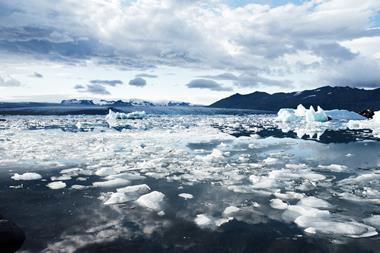Denmark’s statutory pensions giant ATP revealed it excluded nine more companies from its investment universe last year, as a result of the in-depth corporate social responsibility (CSR) fact-finding process it has the policy of conducting.
Mining firms Rio Tinto, Vale and BHP were shown the door by the DKK936bn (€126bn) pension fund, as well as big textile and hydroelectric businesses.
However, these blacklistings did not necessarily result in divestments, since some of the stocks were absent from the portfolio, according to a spokesman for the pension fund, who declined to give a figure for any divestments that were made, but referred to ATP’s upcoming full-year report due to be published on 11 February.
Other, unnamed, portfolio companies were retained after investigations exonerated them, including a social media content moderating firm, according to ATP’s new 2020 report into its fact-finding activities.
ATP said in the report about its work to monitor and examine whether investee companies complied with its CSR policy for investments, that it screened over 1,100 companies in 2020 and conducted more than 29 detailed fact-finding studies.
Explaining the process leading up to its decision to exclude Anglo-Australian mining company Rio Tinto, ATP said that even though the company stressed its efforts to correct past mistakes and establish processes to ensure respect for human rights, in 2020 the expansion of an iron ore mine has destroyed two indigenous Australian sacred sites.
ATP said it did not have confidence that the management firings resulting from this case were sufficient.
“There are many indications that there are structural problems in the company that have not been resolved and that this may very well lead to similar cases in the future,” the Danish pension fund said in the report.
ATP also said it excluded two hydroelectric power plant companies – Brazilian electric utility firm Eletrobras and Egypt’s Elsewedy Electric – from its investment universe because of harm caused to local indigenous people by the former, and harm to surrounding nature and biodiversity in the case of the latter.
The Danish pension fund said it also chose to exclude the textile manufacturers Formosa Taffeta and Page Industries, after investigating them following blacklistings by Norges Bank, the manager of Norway’s sovereign wealth fund, on workers’ rights grounds.
It said it also excluded Formosa Chemicals & Fiber Corp, which it said owned 38% of Formosa Taffeta and exercised significant control over the company.
The French conglomerate Bolloré was also blacklisted by ATP in 2020, for contributing to plantation operations based on dangerous working conditions and the use of child labour, according to the report.
However, in one of ATP’s examples of companies scrutinised in its fact-finding process that had ultimately avoided eviction from the portfolio, the pension fund mentioned the case of an unnamed firm providing content moderating services to a large social media company.
“The company is accused of not taking the mental health of this group of employees seriously enough, but in our dialogue, it turned out that the company is very attentive to the issue and works to ensure that the employees do not suffer mental harm,” ATP said.
The portfolio company in question had a long introductory course in place, which prepared new employees for the work, ATP said as an example, adding that the firm also had psychologists present in the workplace available to staff.








